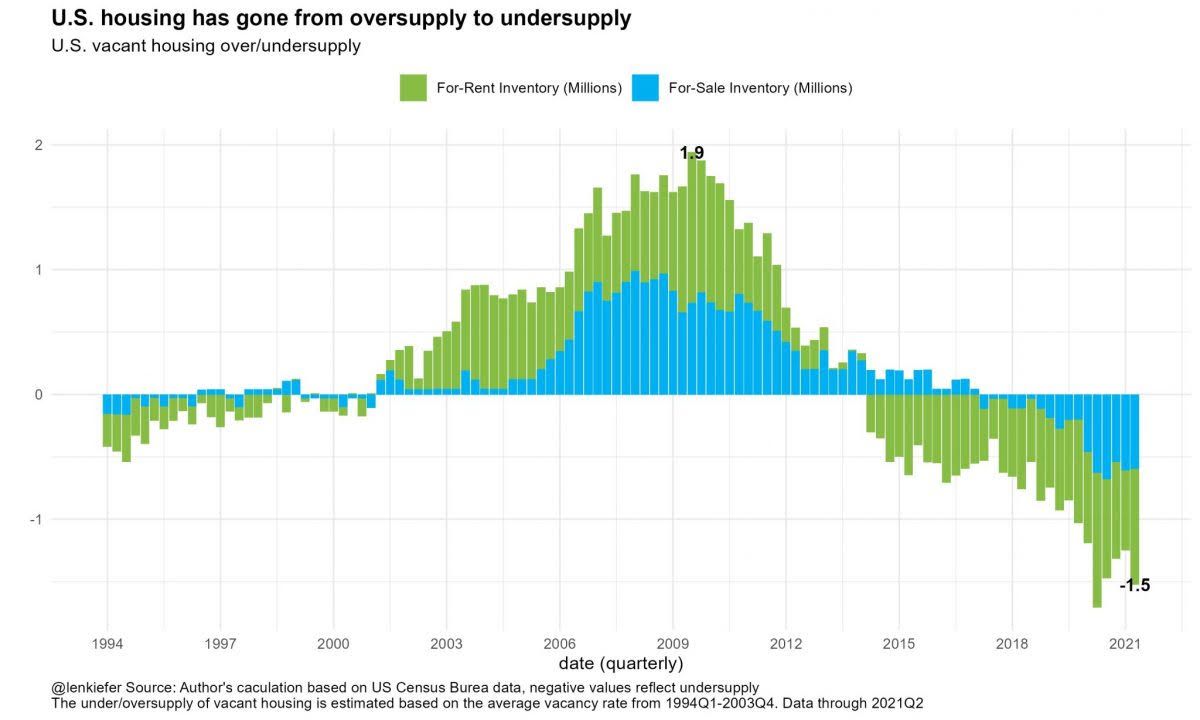Assorted Links Monday
Good to last drop.

Table of Contents
Today on the Econ Dev Show Podcast: From Top to the Bottom: Economic Development in Manatee County Florida with Ruth Buchanan and Che Barnett.
The shift from oversupply to undersupply:

Turning Points: Doing rural development differently
This book chapter highlights six action principles to “do economic development differently”—principles that shifts from the risky “winner takes all” approach that is heavily reliant on a business-recruitment strategy to a “let’s all win” approach of building on a region’s existing, underutilized assets. It is an approach that believes we can work together to get ahead together.
This chapter is part of a new rural development-centered publication from the St. Louis Fed and Federal Reserve Board of Governors, “Investing in Rural Prosperity,” which will be published in November 2021. The book details that rural development will lead to greater economic opportunity for everyone if it is tailored to the community, designed to be resilient to changing circumstances and inclusive about who is at the decision-making table, and is developed through a collaborative process.
The silicon in Silicon Valley, again:
From responding to a pandemic — with novel mRNA vaccines — to building the future — with SpaceX’s rockets and Apple’s new chips — we are seeing that the material world still has the power to thrill.
But even though many appreciate physical products more than ever, this esteem has not yet prompted a broad attitude shift to recognize manufacturing as a valuable competency in the world of technology. The U.S. president and Congress are demanding that America rebuild its manufacturing capacity. Federal incentives are helpful, but government effort alone will only go so far. Success should be defined not by creating spare capacity, but by revitalizing American manufacturing capabilities. That effort will demand active participation from the tech community, which should stop dismissing manufacturing work as a “commoditized” activity not worth smart minds.
Remystifying supply chains: Supply chains are TV for matter:
If you’re like me, you’ve been avidly consuming supply-chain news and analysis lately. Semiconductor shortages and stuck container ships are the charismatic megafauna everybody is watching, but I’m primarily watching for more mundane little things that surprise me in some way. I’m hoping they will serve as clues that point to new ways of thinking about supply chains, because I think our existing mental models are failing us.
A big reason is that we think supply chains are old and well-understood parts of the world (after all, ships still ply trade routes that have been in use for millennia), but as I will argue, they’re not. Supply chains as they exist today are as young and mysterious as the internet. The ongoing supply chain crisis is at least as novel an event in human history as the recent big Facebook outage. Arguably more novel.
And we won’t take supply chains seriously enough until we remystify them in a way that forces us to make up new frames that center their recently evolved novel aspects rather than their ancient and familiar aspects. Frames that encompass the entire vast scope of things that move along global supply lines today. Not just shipping containers full of durable manufactured goods, but bulk-carried materials, air-shipped perishables, seafood, livestock, piped materials, electricity, and so on. Viewed this way, the internet is just one supply chain among many, a bits-and-bytes-specific member of a cohort of technologies that date approximately to the 1960s.
Civic boosters in central Montana hoped for some federal money to promote tourism: A disinformation campaign got in the way.
Workers are quitting these 4 kinds of jobs in droves: Is America a nation of quitters? It could look that way based on the latest report from the Bureau of Labor Statistics , which shows that a whopping 4.3 million workers quit their jobs in August.
Econ Dev Show Newsletter
Join the newsletter to receive the latest updates in your inbox.


